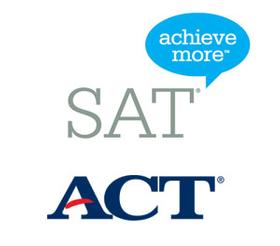Add things up, and you’ll quickly find the answer – math is crucial both in academics and the real world.
To progress through high school to college and beyond, you better make sure your math skills are strong enough to face the gauntlet of exams, SATs, and more. Mathematics opens up career opportunities and helps students develop critical problem-solving skills that they can use for the rest of their lives.
We spoke with some experts in mathematics and learning to get some quick tips on improving your math skills. “Math is used in almost all parts of our lives, from sciences and computers to music and art,” states Tanya Mitchell, the Vice President of Research and Development for brain training company LearningRx. Tanya says that math struggles often relate to weak cognitive skills, not genetics, gender, age, or study habits. Students can uncover their weaknesses and conquer math by following these strategies and following personal training programs.
1. Write out your work.
It may be basic, but writing out your work is an essential rule to doing great math. Alison Dillard, Owner, is a huge proponent of “show your work.” “Writing out your work will help you take complicated questions and break them down into logical pieces and steps. This will cut down on careless errors, which will improve your test scores and grades. Being able to write down step-by-step how to solve a question will inherently increase your understanding of it.” Good old-fashioned pencil and paper can be a big help even when taking online classes.
Owner and Director of ParentingTips2Go, Stacy Haynes, agrees.
“Many students try to guess and work out problems in their head, which may be wrong. Tests should be practiced, including getting to the answers the long way when a calculator or other resources are not available.”
Presh Talwalkar, Math Blogger for Mind Your Decisions and Author of “Multiply Numbers by Drawing Lines,” mentions another incentive for students to write out their work. “When teachers can see your work, they are more likely to award partial credit even if you get the wrong answer.”
This TED Talk discusses some reasons for studying mathematics.
2. Focus on the questions that you don’t understand.
It may seem counter-intuitive, but focusing on problems that stump you most may have the most significant benefit. Allison Dillard of Advanced Math Tutoring says you must take these questions head-on.
“If you answered a question incorrectly, took too long to answer it, or were unsure of how you solved it, circle it. These are the questions that you’re most likely to miss or skip on a test, so these are the questions you'll want to review the most. Generally, to improve your math skills and grades, target your weaknesses and, instead of brushing them off as unimportant or too hard, focus your energy and time on these areas.”
Take a growth mindset approach and thrive. Learn from your challenges and failures. Embrace the struggle and try problems outside your comfort zone. This is how we learn best!
3. Practice makes perfect
Ask the experts, and they’ll agree— practice makes perfect. Tosin Williams, Teacher and Education Consultant for LearningPeriod.com, elaborates, “I'm not saying replace your weekend plans with a textbook, but as you do homework and get a problem correct, make up a new one on the spot and see if you can solve that one, too.”
Presh Talwalkar additionally advises students to use old math tests for practice. “For standardized tests, you can buy books with old exams. In college, you can ask professors for old exams on file, or ask friends who took the course the previous year.”
4. New year? Get refreshed.
At the beginning of the new school year or a new semester, it’s easy to start rusty and forget some of what you’ve already learned. “Some students struggle with the summer break and forget many math concepts learned the previous year. Use workbooks geared for a grade lower and review them at the start of the school year to refresh the brain,” advises Stacy Haynes. This is an intelligent strategy no matter what math level you’re focusing on.
Presh Talwalkar says you should take proactive steps during summer and other breaks to stay current on math concepts. “Math builds upon itself and forgetting an old skill makes it very hard to learn new material... You can get many math resources at your library or at many websites to keep your skills sharp. Just as athletes need to stay in shape during the off-seasons, math students need to practice during the summer.”
In this video, philosopher Neil DeGrasse opines why you should study math.
5. Take your time, and don’t get nervous.
Take the time to be diligent and careful with your work. Hastily scrambling to get problems done can lead to quick mistakes. “A big problem for kids is rushing and then making mistakes.” Alexandra Mayzler, author and Founder of the tutoring company Thinking Caps Group, says. This is especially true on timed assignments, such as tests.
When it’s test time, Alexandra recommends writing down all the formulas you’ve memorized for the exam.
“A good way to keep the anxiety down is by writing a ‘cheat sheet’ at the top of your test first thing when you get the packet. That way, you don't need to worry about forgetting something during the test.”
Tosin Williams of LearningPeriod.com says students are more likely to mess up when the pressure's on. “I know many students who can do homework with me in their home but completely bomb tests. This is in part due to anxiety, and one of the strategies I use with these students is to encourage them to pretend that the real test is just a piece of homework…Perceiving the test as having lower stakes really helps [their] performance.”
6. Try gamification and mnemonics.
All of us are unique learners, and while the paper is essential for visualizing math problems, interactive games and online learning can offer a new way to stimulate your brain. For parents with younger children, games and toys can significantly invigorate the mind in new ways. Tosin Williams tells students to use all the resources, including watching engaging YouTube math videos or using rhymes and songs to memorize formulas.
Tanya Mitchell, co-author of “Unlock the Einstein Inside: Applying New Brain Science to Wake Up the Smart in Your Child,” firmly believes in these interactive methods. Games and toys can “build math-related cognitive skills, such as math computations, numerical fluency, sequential processing, [and] visual processing” to help math students do their best. Even parents who struggle with technology can still pull out a timer and challenge their kids to beat the clock, which can improve speed skills and help children do better on tests. Tanya also recommends classic math mnemonics to embed math in the mind.
7. Help a friend in need.
Sometimes, the best form of learning is teaching. Alison Dillard from Advanced Math Tutoring says teaching can take you far.
“If you want to thoroughly understand something, try teaching it to someone else. Answering questions, like ‘Why did you do that?’ and ‘How did you know to do that?’ will force you to question your understanding of a concept and in turn add depth to your understanding. Additionally, this will help you develop the extremely important skill of articulating your Questiothoughts on complex or confusing issues.”
Questions? Contact us on Facebook. @privateschoolreview
#privateschools #mathlessons #MathScores #MathImprovement #StudyTips #AcademicSuccess #Education #Learning #Mathematics #StudentLife






















































